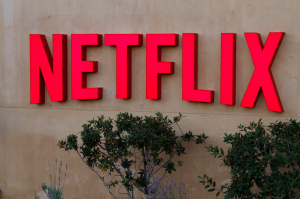
After more than 40 years of operation, DTVE is closing its doors and our website will no longer be updated daily. Thank you for all of your support.
Netflix: changes to net neutrality laws could impede growth
 Changes to laws related to net neutrality could decrease demand for Netflix and increase its cost of doing business, the internet video giant has warned.
Changes to laws related to net neutrality could decrease demand for Netflix and increase its cost of doing business, the internet video giant has warned.
In Netflix’s annual report, which it filed with the US Securities and Exchange Commission on Friday, the company said that adoption or modification of internet laws or regulations could “limit or otherwise adversely affect the manner in which we currently conduct our business.”
It said that compliance with new, or new interpretations of, legislation could cause Netflix to “incur additional expenses or alter our business model”.
“Certain laws intended to prevent network operators from discriminating against the legal traffic that traverse their networks have been implemented in many countries, including the United States and the European Union. In others, the laws may be nascent or non-existent,” said Netflix in its 10K filing.
“Given uncertainty around these rules, including changing interpretations, amendments or repeal, coupled with potentially significant political and economic power of local network operators, we could experience discriminatory or anti-competitive practices that could impede our growth, cause us to incur additional expense or otherwise negatively affect our business.”
The comments form part of lengthy section of the document titled ‘Risk Factors’, which list potential threats to Netflix’s future business model. Top of this section was a warning that the business would be “adversely affected” if the SVOD giant is not able to attract or retain members.
Netflix said that its ability to consistently provide members with compelling content will, in part, determine whether it can continue the “significant membership growth” it has seen in recent years.
“If consumers do not perceive our service offering to be of value, including if we introduce new or adjust existing features, adjust pricing or service offerings, or change the mix of content in a manner that is not favourably received by them, we may not be able to attract and retain members,” said Netflix.
Other listed ‘risk factors’ included piracy and heightened competition from traditional providers of entertainment video – including broadcasters and cable network operators, as well as internet based e-commerce firms.
“Several of these competitors have long operating histories, large customer bases, strong brand recognition and significant financial, marketing and other resources. They may secure better terms from suppliers, adopt more aggressive pricing and devote more resources to product development, technology, infrastructure, content acquisitions and marketing,” said Netflix.
Elsewhere, it warned that it could be subject to economic, political, regulatory and other risks arising from our international operations, and that it faced risks such as unforeseen costs and potential liability in connection with content it acquires, produces, licenses and distributes through its service.
The comments follow Netflix’s recent quarterly letter to shareholders, which it released earlier this month as part of its Q4 2016 earnings announcement.
In this Netflix said that should the weakening of US net neutrality occur, it would be “unlikely to materially affect our domestic margins or service quality” because Netflix is “now popular enough with consumers to keep our relationships with ISPs stable”.
However, it said that on a public policy basis, net neutrality is important to support innovation and small businesses. It added that “no one wants ISPs to decide what new and potentially disruptive services can operate over
their networks, or to favour one service over another.”
The letter came ahead of US President Donald Trump’s decision last week to appoint an outspoken critic of net neutrality, Ajit Pai, as the chairman of US media and telecoms regulator the Federal Communications Commission.


